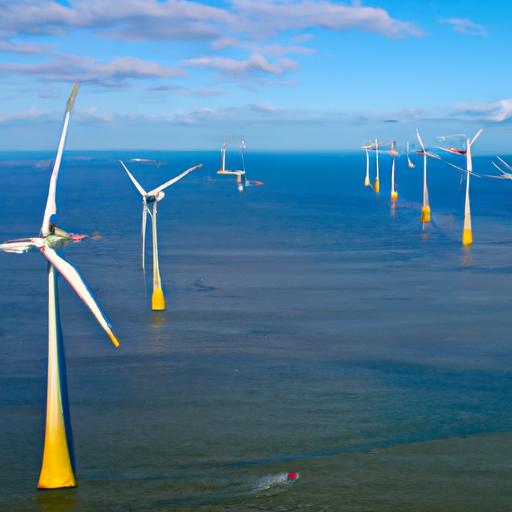The Federal Network Agency in Germany (BNetzA), in a significant stride towards renewable energy expansion and growth, has recently concluded its most substantial offshore wind auction yet, allocating a new capacity of 7 GW. The outcome of the auction, valuing about €12.6 billion or $13.96 billion, sets a critical benchmark for Germany’s renewable energy goals.
Two Big Oil Companies Emerge Successful
In the auction that commenced in April and wrapped up in July, two notable European oil companies, BP and Total Energies, were successful in their bids, winning in the North Sea and Baltic Sea regions with capacities of 6 GW and 1 GW, respectively. Despite the UK’s failure to secure bids for its own offshore wind projects, these wins have rekindled interest in Germany’s auction.
Negative Bidding and its Impact on Wind Energy Sector
However, the concept of negative bidding, which requires project developers to pay for the privilege of establishing their wind farms, has significantly influenced the offshore wind sector. While the government obtained a cost-effective outcome, this approach has considerable repercussions. For instance, amid concerns over high prices, wind energy expert Ørsted chose to withdraw from the German seabed lease auction.
Transfer of Additional Costs to Developers
With the implementation of the negative bidding system, offshore wind developers have to bear extra costs. The wind supply chain, already struggling with inflation and rising input costs, could face further difficulties. Additionally, consumers might bear the financial burden given the escalating electricity prices and overall cost of living.
The Auction’s Massive Result
The auction’s outcome obliges offshore wind developers to pay a whopping €12.6 billion to the German Government. Impressively, almost 90% of these funds will go towards financing grid connection costs, 5% will be allocated for protecting maritime biodiversity, and the remaining 5% will help support eco-friendly fishing initiatives.
EU’s Renewable Energy Goals
The EU is dedicated to boosting energy security via domestically-sourced renewables, such as wind energy. However, Germany’s offshore wind energy auctions employing negative bidding could counteract these efforts. Negative bidding might result in lower electricity prices for consumers but could also apply downward pressure on profit margins throughout the wind energy supply chain, potentially deterring investment in new projects and complicating the achievement of the EU’s renewable energy targets.
Call for Rethinking the Auction Strategy
Therefore, experts are urging the German government to reconsider its negative bidding strategy in offshore wind energy auctions. Instead, the focus should shift towards promoting wind energy supply chain development through industrial capacity and infrastructure investments.
The Future Auction Format
Germany plans to auction another 1.8 GW of offshore wind capacity by the end of 2024 by adopting a different auction design, emphasizing non-price criteria. This development is seen positively by wind energy experts, as it could mitigate the adverse effects of negative bidding on the wind energy supply chain.
Final Thoughts
Klaus Mueller, President of the Federal Network Agency, regards these zero-cent bids as a positive signal for Germany’s energy transition. He believes that the results indicate the economic viability of offshore wind energy without the need for subsidies.

























